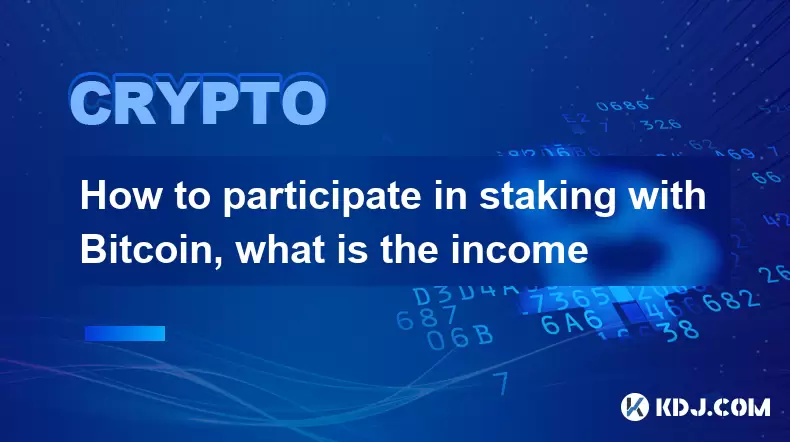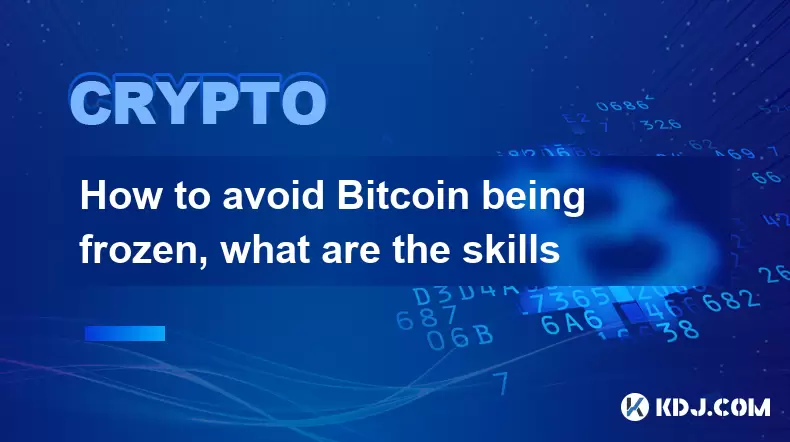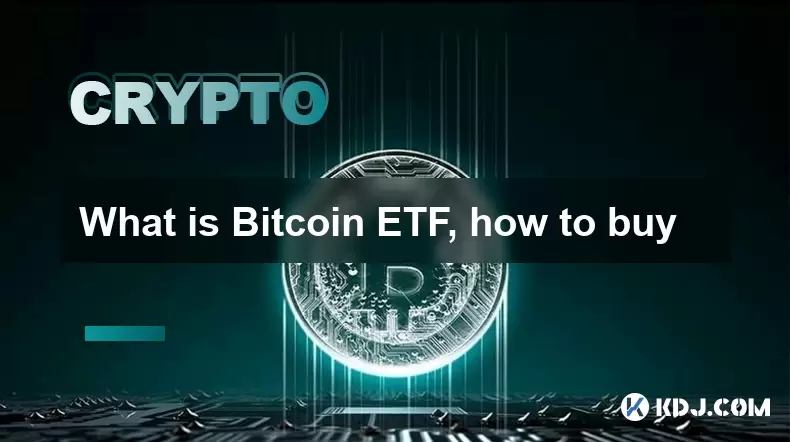-
 Bitcoin
Bitcoin $103,273.7216
0.40% -
 Ethereum
Ethereum $2,510.9981
7.57% -
 Tether USDt
Tether USDt $1.0000
-0.02% -
 XRP
XRP $2.4230
3.00% -
 BNB
BNB $655.4315
2.48% -
 Solana
Solana $173.4988
0.81% -
 USDC
USDC $0.9999
0.00% -
 Dogecoin
Dogecoin $0.2384
16.31% -
 Cardano
Cardano $0.8221
5.54% -
 TRON
TRON $0.2611
-0.06% -
 Sui
Sui $4.0376
3.46% -
 Chainlink
Chainlink $16.9963
6.33% -
 Avalanche
Avalanche $25.4192
10.21% -
 Stellar
Stellar $0.3101
4.98% -
 Shiba Inu
Shiba Inu $0.0...01610
6.46% -
 Hedera
Hedera $0.2142
5.58% -
 Hyperliquid
Hyperliquid $25.4184
1.77% -
 Toncoin
Toncoin $3.4042
3.97% -
 Bitcoin Cash
Bitcoin Cash $422.7067
3.61% -
 Polkadot
Polkadot $5.1332
7.25% -
 UNUS SED LEO
UNUS SED LEO $8.5433
-2.29% -
 Litecoin
Litecoin $104.0435
4.02% -
 Monero
Monero $321.6543
3.48% -
 Bitget Token
Bitget Token $4.8582
8.31% -
 Pepe
Pepe $0.0...01325
7.97% -
 Dai
Dai $0.9999
-0.02% -
 Pi
Pi $0.7407
0.85% -
 Ethena USDe
Ethena USDe $1.0003
0.01% -
 Uniswap
Uniswap $6.9289
9.61% -
 Bittensor
Bittensor $459.5209
8.32%
How to arbitrage Bitcoin, what are the common methods
Bitcoin arbitrage involves buying low on one exchange and selling high on another, but it requires quick action and careful consideration of fees and risks.
May 10, 2025 at 12:50 am

Arbitraging Bitcoin involves taking advantage of price differences between different exchanges or markets to generate a profit. This practice can be lucrative, but it also comes with risks and requires careful planning and execution. In this article, we will explore the common methods of Bitcoin arbitrage, providing detailed guidance on how to execute these strategies effectively.
Understanding Bitcoin Arbitrage
Bitcoin arbitrage is the process of buying Bitcoin on one exchange where the price is lower and selling it on another exchange where the price is higher. The key to successful arbitrage lies in the ability to quickly identify and act on price discrepancies before they disappear. Arbitrageurs must also consider transaction fees, withdrawal fees, and the time it takes to transfer Bitcoin between exchanges, as these factors can eat into potential profits.
Types of Bitcoin Arbitrage
There are several types of Bitcoin arbitrage, each with its own set of strategies and considerations. The most common methods include:
- Spatial Arbitrage: This involves buying and selling Bitcoin across different geographic regions where prices vary due to local demand and supply dynamics.
- Temporal Arbitrage: This strategy takes advantage of price differences that occur over time, often due to news events or market volatility.
- Cross-Exchange Arbitrage: This method involves exploiting price differences between different cryptocurrency exchanges.
- Triangular Arbitrage: A more complex form of arbitrage that involves trading between three different cryptocurrencies to exploit price inefficiencies.
Spatial Arbitrage
Spatial arbitrage is one of the simplest forms of Bitcoin arbitrage. It involves buying Bitcoin in a region where it is cheaper and selling it in another region where it is more expensive. To execute this strategy effectively, you need to:
- Identify regions with significant price differences. This can be done by monitoring prices on various exchanges that cater to different geographic markets.
- Consider the costs associated with transferring Bitcoin between regions, including any fees and the time it takes to complete the transaction.
- Ensure that you have accounts set up on exchanges in both regions to facilitate the buying and selling process.
Temporal Arbitrage
Temporal arbitrage involves taking advantage of price movements that occur over time. This strategy can be particularly effective during periods of high market volatility. To implement temporal arbitrage:
- Monitor Bitcoin prices closely, using real-time data feeds and charting tools to identify short-term price discrepancies.
- Set up alerts to notify you of significant price movements that could present arbitrage opportunities.
- Execute trades quickly to capitalize on these price differences before they normalize.
Cross-Exchange Arbitrage
Cross-exchange arbitrage is one of the most common forms of Bitcoin arbitrage. It involves buying Bitcoin on one exchange and selling it on another where the price is higher. To execute this strategy:
- Identify exchanges with significant price differences for Bitcoin. This can be done using arbitrage bots or by manually comparing prices across multiple exchanges.
- Ensure that you have accounts set up on both exchanges to facilitate the buying and selling process.
- Consider the fees associated with depositing and withdrawing Bitcoin, as well as any trading fees, as these can impact your overall profit margin.
- Execute the trades quickly to take advantage of the price discrepancy before it disappears.
Triangular Arbitrage
Triangular arbitrage is a more complex form of arbitrage that involves trading between three different cryptocurrencies to exploit price inefficiencies. To execute this strategy:
- Identify three cryptocurrencies that form a triangular relationship, where the price of one cryptocurrency can be expressed in terms of the other two.
- Calculate the potential profit by comparing the direct exchange rate between two cryptocurrencies with the indirect exchange rate obtained by trading through the third cryptocurrency.
- Execute the trades in a specific sequence to take advantage of the price inefficiency. For example, if you are trading between Bitcoin (BTC), Ethereum (ETH), and Litecoin (LTC), you might:
- Buy ETH with BTC
- Buy LTC with ETH
- Sell LTC for BTC
- Ensure that you have accounts set up on exchanges that support trading between all three cryptocurrencies.
Tools and Resources for Bitcoin Arbitrage
To successfully execute Bitcoin arbitrage strategies, you will need access to a variety of tools and resources. Some of the most useful tools include:
- Arbitrage Bots: Automated software that can monitor prices across multiple exchanges and execute trades when profitable opportunities arise. Examples include Blackbird and Gekko.
- Price Comparison Websites: Websites like CoinMarketCap and CryptoCompare provide real-time price data for Bitcoin across various exchanges, helping you identify arbitrage opportunities.
- Trading Platforms: Reliable trading platforms with low fees and fast transaction times are essential for executing arbitrage trades. Popular options include Binance, Coinbase Pro, and Kraken.
- Cryptocurrency Wallets: Secure wallets are necessary for storing and transferring Bitcoin between exchanges. Consider using hardware wallets like Ledger or software wallets like Electrum.
Risks and Considerations
While Bitcoin arbitrage can be profitable, it also comes with several risks and considerations that you should be aware of:
- Market Volatility: Bitcoin prices can be highly volatile, and price discrepancies can disappear quickly. This means you need to act fast to capitalize on arbitrage opportunities.
- Transaction Fees: The fees associated with buying, selling, and transferring Bitcoin can eat into your profits. Always factor these costs into your calculations.
- Exchange Reliability: Not all cryptocurrency exchanges are equally reliable. Choose exchanges with a good reputation and strong security measures to minimize the risk of losing your funds.
- Regulatory Risks: The regulatory environment for cryptocurrencies can vary significantly between regions. Ensure that you are aware of and comply with all relevant regulations to avoid legal issues.
Frequently Asked Questions
Q: How much capital do I need to start Bitcoin arbitrage?
A: The amount of capital you need to start Bitcoin arbitrage can vary depending on the specific strategy you are using and the size of the price discrepancies you are targeting. Generally, you will need enough capital to cover the cost of buying Bitcoin on one exchange and any associated fees, as well as a buffer to account for potential losses due to market volatility.
Q: Is Bitcoin arbitrage legal?
A: Bitcoin arbitrage is legal in most jurisdictions, as long as you comply with local regulations regarding cryptocurrency trading and taxation. However, it is important to stay informed about the regulatory environment in your region, as laws can change and may impact your ability to engage in arbitrage activities.
Q: Can I automate Bitcoin arbitrage?
A: Yes, you can automate Bitcoin arbitrage using arbitrage bots. These bots can monitor prices across multiple exchanges and execute trades automatically when profitable opportunities arise. However, you should still monitor the bot's performance and be prepared to intervene if necessary, as automated systems can sometimes make errors or miss opportunities.
Q: What are the biggest challenges in Bitcoin arbitrage?
A: The biggest challenges in Bitcoin arbitrage include market volatility, transaction fees, exchange reliability, and regulatory compliance. These factors can impact your ability to identify and capitalize on arbitrage opportunities, and they require careful management to ensure successful outcomes.
Disclaimer:info@kdj.com
The information provided is not trading advice. kdj.com does not assume any responsibility for any investments made based on the information provided in this article. Cryptocurrencies are highly volatile and it is highly recommended that you invest with caution after thorough research!
If you believe that the content used on this website infringes your copyright, please contact us immediately (info@kdj.com) and we will delete it promptly.
- Damocles
- 2025-05-11 05:20:13
- HBAR Update: ETF Buzz & Institutional Growth
- 2025-05-11 05:20:13
- Why Shiba Inu Was a Moment, Not a Movement
- 2025-05-11 05:15:12
- Belo Horizonte, a city in Brazil, passes a crypto bill that seeks to enable the city to become a Bitcoin capital
- 2025-05-11 05:15:12
- Qubetics ($TICS) Is Doing Differently While BNB Scales and Flare Builds—Best Cryptos to Invest in This Weekend Just Got Interesting
- 2025-05-11 05:10:14
- Bitcoin (BTC) 6-Month Roadmap to $188,000 ATH Released
- 2025-05-11 05:10:14
Related knowledge

How to participate in staking with Bitcoin, what is the income
May 10,2025 at 02:50pm
Introduction to Bitcoin StakingBitcoin, the pioneer cryptocurrency, traditionally operates on a Proof of Work (PoW) consensus mechanism. However, with the advent of technologies like Bitcoin Staking, users can now participate in a different way to earn income from their Bitcoin holdings. Bitcoin Staking involves locking up your Bitcoin to support the op...

How to determine the buying and selling points with Bitcoin, what are the indicators
May 10,2025 at 03:42am
Introduction to Bitcoin TradingBitcoin, the pioneering cryptocurrency, has attracted numerous traders looking to profit from its volatile price movements. Determining the right buying and selling points is crucial for success in trading Bitcoin. Traders often rely on various technical indicators to make informed decisions. In this article, we will explo...

How to avoid Bitcoin being frozen, what are the skills
May 11,2025 at 03:28am
How to Avoid Bitcoin Being Frozen: What Are the Skills Bitcoin, the pioneering cryptocurrency, has revolutionized the way we think about money and transactions. However, like any financial asset, it comes with its own set of risks, including the possibility of your Bitcoin being frozen. Understanding how to avoid this situation is crucial for any Bitcoi...

How to participate in DeFi with Bitcoin, what platforms are there
May 10,2025 at 07:49am
Participating in decentralized finance (DeFi) with Bitcoin has become increasingly popular as more platforms enable users to leverage their Bitcoin holdings in various DeFi applications. This article will explore how you can participate in DeFi with Bitcoin and introduce some of the key platforms that facilitate this. Understanding DeFi and Bitcoin Inte...

What is a Bitcoin node, how to build
May 11,2025 at 01:00am
A Bitcoin node is a crucial component of the Bitcoin network, serving as a point of communication and validation within the decentralized system. Essentially, a Bitcoin node is a computer that runs the Bitcoin software and fully validates transactions and blocks. By operating a node, you contribute to the security and decentralization of the network, as...

What is Bitcoin ETF, how to buy
May 10,2025 at 10:21am
A Bitcoin ETF, or Exchange Traded Fund, is a type of investment vehicle that allows investors to gain exposure to Bitcoin without directly owning the cryptocurrency. Bitcoin ETFs are traded on traditional stock exchanges, making them more accessible to investors who are familiar with stock market trading but hesitant to engage with cryptocurrency exchan...

How to participate in staking with Bitcoin, what is the income
May 10,2025 at 02:50pm
Introduction to Bitcoin StakingBitcoin, the pioneer cryptocurrency, traditionally operates on a Proof of Work (PoW) consensus mechanism. However, with the advent of technologies like Bitcoin Staking, users can now participate in a different way to earn income from their Bitcoin holdings. Bitcoin Staking involves locking up your Bitcoin to support the op...

How to determine the buying and selling points with Bitcoin, what are the indicators
May 10,2025 at 03:42am
Introduction to Bitcoin TradingBitcoin, the pioneering cryptocurrency, has attracted numerous traders looking to profit from its volatile price movements. Determining the right buying and selling points is crucial for success in trading Bitcoin. Traders often rely on various technical indicators to make informed decisions. In this article, we will explo...

How to avoid Bitcoin being frozen, what are the skills
May 11,2025 at 03:28am
How to Avoid Bitcoin Being Frozen: What Are the Skills Bitcoin, the pioneering cryptocurrency, has revolutionized the way we think about money and transactions. However, like any financial asset, it comes with its own set of risks, including the possibility of your Bitcoin being frozen. Understanding how to avoid this situation is crucial for any Bitcoi...

How to participate in DeFi with Bitcoin, what platforms are there
May 10,2025 at 07:49am
Participating in decentralized finance (DeFi) with Bitcoin has become increasingly popular as more platforms enable users to leverage their Bitcoin holdings in various DeFi applications. This article will explore how you can participate in DeFi with Bitcoin and introduce some of the key platforms that facilitate this. Understanding DeFi and Bitcoin Inte...

What is a Bitcoin node, how to build
May 11,2025 at 01:00am
A Bitcoin node is a crucial component of the Bitcoin network, serving as a point of communication and validation within the decentralized system. Essentially, a Bitcoin node is a computer that runs the Bitcoin software and fully validates transactions and blocks. By operating a node, you contribute to the security and decentralization of the network, as...

What is Bitcoin ETF, how to buy
May 10,2025 at 10:21am
A Bitcoin ETF, or Exchange Traded Fund, is a type of investment vehicle that allows investors to gain exposure to Bitcoin without directly owning the cryptocurrency. Bitcoin ETFs are traded on traditional stock exchanges, making them more accessible to investors who are familiar with stock market trading but hesitant to engage with cryptocurrency exchan...
See all articles






















































































